|
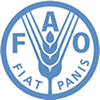
Focal point: Reuben Sessa
Email: reuben.sessa@fao.org
|
Food and Agriculture Organization of the United Nations (FAO)
Building capacity of stakeholders, in particular small holders in developing countries, to combat and adapt to climate change through, inter alia:
- supporting the adoption of climate smart agriculture practices, policy and finance approaches; supporting farmer field and junior farmer field and life schools programmes;
- developing climate change education and public awareness initiatives and educational resources, especially for children and young people, to promote more sustainable and climate smart behaviour.
For more information please consult:
www.fao.org/climatechange/en/
www.fao.org/climatechange/youth/en/
www.yunga-un.org
|
|

Focal points: Moustapha Kamal Gueye
Email: gueye@ilo.org
Olga Strietska-Ilina
Email: strietska-ilina@ilo.org
|
International Labour Organization (ILO)
The ILO with its tripartite constituency of Governments, employers and workers has the mission to promote decent work and synergies between ambitious climate change action and social and labour market outcomes through a just transition for all, by inter alia:
For more information please consult:
http://www.ilo.org/global/lang--en/index.htm
http://www.ilo.org/global/topics/green-jobs/lang--en/index.htm
http://www.itcilo.org/en
|
|

Focal points: Gautam Narasimhan
Email: gnarasimhan@unicef.org
Amy Wickham
Email: awickham@unicef.org
|
United Nations Children's Fund (UNICEF)
UNICEF's fundamental mission is to promote the rights of every child, everywhere, in everything the organization does. At UNICEF, our climate, environment, energy, and disaster risk reduction activities aim to:
- Improving the resilience of children and their communities by adapting essential social services to a changing climate, disasters, and a degrading environment;
- Empowering every child with the education, skills, and opportunities to be a champion for the planet;
- Driving sustainability within UNICEF and our global network of partners, government, and suppliers.
For more information please consult:
Climate change and environment | UNICEF
Disaster risk reduction and recovery | UNICEF
A Liveable Planet for Every Child | UNICEF
|
|
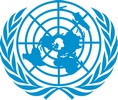
Focal point: Daniel Shepard
Email: shepard@un.org
|
United Nations Department of Public Information (UN DPI)
- Promoting global awareness and understanding of the United Nations' work on climate change;
- Building partnerships and fostering dialogue with global constituencies such as academia, civil society, the entertainment industry, educators and youth to encourage support for the activities of the United Nations on climate change;
- Working with the media to help cover various aspects of the United Nations’ work on climate change;
- Hosting the Gateway to the United Nations System work on Climate Change: http://www.un.org/climatechange/.
For more information please consult:
http://www.un.org/en/hq/dpi/
|
|

Focal point: Alana Craigen
Email: alana.craigen@undp.org
|
United Nations Development Programme (UNDP)
UNDP works with national, regional, and local stakeholders to help them respond effectively to climate change and promote low-emission, climate-resilient development. UNDP support focuses on three areas: connecting countries to knowledge, experience and resources to help people increase their resilience to climate impacts and shift production and consumption practices so they are not harmful to the environment; helping countries build more resilient societies; and strengthening the capacity of countries to access, manage and account for climate finance through, inter alia:
- Providing training to enhance understanding and participation of Governments, non-governmental organizations and indigenous groups in the international climate change negotiations;
- Strengthening adaptive capacity of Governments and civil society;
- Producing public awareness materials and providing technical expertise for the organization of awareness-raising events and enhanced stakeholder engagement at the national and sub-national level;
- Strengthening institutions and leadership on climate change at the national and sub-national level;
- Facilitating active participation of affected communities in climate change decision-making;
- Supporting national stakeholders to develop the infrastructure and capabilities needed to access, analyse and apply data to build the resilience of national development strategies, priorities and plans;
- Contributing to climate change education at schools, universities and institutions.
For more information please consult:
http://www.undp.org/content/undp/en/home/ourwork/environmentandenergy/strategic_themes/climate_change.html
|
|

Focal point: Verona Collantes
Email: verona.collantes@unwomen.org
|
United Nations Entity for Gender Equality and the Empowerment of Women (UN-Women)
UN Women works towards the achievement of equality between women and men as partners and beneficiaries of development, human rights, humanitarian action and peace and security. To help ensure that discussions and work on climate change education, training, public awareness, participation and access to information reflect a gender perspective and are gender-responsive, UN Women:
- Supports intergovernmental bodies, such as the Commission on the Status of Women (CSW), and does advocacy at the UNFCCC, the General Assembly and SIDS 2014 process, among others;
- Advances women’s leadership and participation in the UNFCCC process through
- Working with partners in advocacy on gender equality and climate change through outreach to Member States, publications, co-organisation of and participation in side-events and other high-level meetings and conferences;
- Hosting the “Knowledge Gateway on Women’s Economic Empowerment,” a ‘one-stop-shop’ portal through which users can find resources focusing on women’s economic empowerment;
- Supporting countries and regions through programmes on the ground to develop gender-responsive climate policies and strengthening women’s capacity to cope with climate change impacts.
For more information please consult:
http://www.unwomen.org/en/about-us/about-un-women#
http://www.unwomen.org/en/how-we-work/intergovernmental-support/other-intergovernmental-processes
http://www.unwomen.org/en/what-we-do/economic-empowerment/sustainable-development-and-climate-change#sthash.URKRp7Yy.dpuf
|
|

Focal point: Jaime Alexandra Webbe
Email: jaime.webbe@unep.org
|
United Nations Environment Programme (UNEP)
- Supporting countries in designing, launching and implementing national climate change outreach programmes and developing long-term national action plans and strategies on Article 6;
- Promoting the integration of environment and sustainability concerns into teaching, research, community engagement and the management of universities as well as providing training courses on sustainable development, preparedness for disaster risk reduction, environment risk reduction and environmental law through the Global Universities Partnership on Environment for Sustainability;
- Developing and implementing outreach programmes with the Tunza Network, children and youth organizations, and through partnerships with the scouts, girl guides, school children, students etc.;
- Providing training and mentoring workshops for journalists, particularly from developing countries;
- Producing information materials such as publications, atlases, audiovisuals and graphics that are widely disseminated among climate change focal points, decision makers and civil society;
- Educating young people on sustainable consumption through the joint YouthXchange Initiative with UNESCO, and through engagement in the Think.Eat.Save Campaign against food waste and unsustainable consumption with FAO.
For more information please consult:
http://www.unep.org/climatechange/
|
|

Focal points: Ina Parvanova
Email: IParvanova@unfccc.int
Fleur Newman
Email: FNewman@unfccc.int
|
United Nations Framework Convention on Climate Change (UNFCCC)
For more information please consult:
http://unfccc.int/cooperation_and_support/education_and_outreach/items/2529.php
|
|
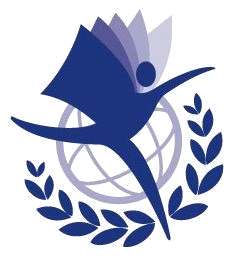
Focal points: Amrei Horstbrink
Email: amrei.horstbrink@unitar.org
Cristina Rekakavas
Email: cristina.rekakavas@unitar.org
|
United Nations Institute for Training and Research (UNITAR)
- Supporting learning and capacity development to address climate change through a range of innovative services and products: http://www.unitar.org/climate-change-at-unitar;
- Hosting the Secretariat for the One UN Training Service Platform on Climate Change UN CC:Learn, a partnership of 33 multilateral organizations which supports countries in designing and implementing results-oriented and sustainable learning to address climate change.
|
|

Focal point: Won Jung Byun
Email: wj.byun@unesco.org
|
United Nations Educational, Scientific and Cultural Organization (UNESCO)
|
|
Focal point: Jennifer Park
Email: jennifer@un.org
|
United Nations Secretary-General's Climate Change Support Team
Calling climate change ''the defining issue of our time", UN Secretary-General Ban Ki-moon is actively:
- Supporting governments to build a new legal climate agreement by 2015;
- Promoting action that educates the public on climate change causes and solutions, and helps empower citizens to address climate change;
- Supporting the UN system in its climate change education, training and public awareness efforts.
For more information please consult:
http://www.un.org/wcm/content/site/climatechange/pages/gateway/secretary-general
|
|

Focal points: Zinaida Fadeeva
Email: fadeeva@unu.edu
Dr. Philip Vaughter
Email: vaughter@unu.edu
|
United Nations University - Institute of Advanced Studies (UNU - IAS)
Advancing Education for Sustainable Development (ESD), including climate change related training, education, research and action, through its ESD programme by:
- Promoting the incorporation of ESD into curricula at all levels of education and in all levels of society to increase general knowledge of ESD-related issues globally, while improving international actions related to ESD;
- Developing learning systems for sustainable development through its 127 Regional Centres of Expertise on ESD that are comprised of regional and local networks of organizations representing, among others, institutions of formal and non-formal learning including universities, schools, municipalities, civil society organisations and private sector;
- Enabling global exchange of experiences and innovative practices for capacity development and their institutionalization.
For more information please consult:
www.ias.unu.edu
|
|
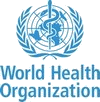
Focal points: Elena Villalobos Prats
Email: villalobose@who.int
Marina Maiero
Email: maierom@who.int
|
World Health Organization (WHO)
- Promoting the protection of health from adverse impacts of climate change through its long-standing programme on climate change and human health;
- Providing evidence and supporting capacity-building and implementation of projects to strengthen the health system response to climate change through:
- guidance on how to conduct a health vulnerability and adaptation assessment;
- guidance to support the implementation of the health national adaptation process;
- awareness raising tools and manuals on the health impacts of climate change.
For more information please consult:
http://www.who.int/globalchange/en/
|
|
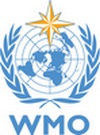
Focal point: Michael Williams
Email: mwilliams@wmo.int
|
World Meteorological Organization (WMO)
- Assisting countries to develop education and training programmes on weather, climate and water with the aim of strengthening scientific and operational capabilities and public weather services;
- Raising public awareness of the most recent scientific findings about climate variability and climate change.
For more information please consult:
http://www.wmo.int/pages/themes/WMO_climatechange_en.html
|